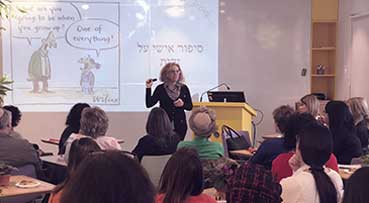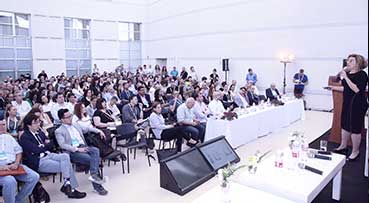Uta Abe, a world champion and top contender, faced a heart-wrenching defeat that led to an emotional breakdown. This moment of vulnerability highlighted the intense emotional toll that failure can exact, especially when the stakes are high. In contrast, Simone Biles took a different approach at the Tokyo 2020 Olympics as she made the courageous decision to withdraw from several events. By stepping away, Biles avoided a potential breakdown and prioritized her long-term health. Her comeback in the 2023 Paris Olympics, reclaiming her position as one of the world’s top gymnasts, demonstrates that taking a step back can lead to even greater achievements.
This is the new face of success in our uncertain times. It’s not about never falling – it’s about how quickly you can get back up, learn, and evolve.
Failure is important. It teaches us what we should stop doing, start doing, or do differently, making it an essential catalyst for growth, innovation, and ultimate success. Failure provides invaluable learning opportunities that success often cannot. It forces us to reassess our assumptions, refine our strategies, and develop resilience. In the scientific community, failure is an inherent part of the experimental process, driving progress and new discoveries. Even in high-stakes environments like the Olympics, we see how athletes like Simone Biles turn apparent failures into springboards for comeback and growth.
So, if failure is not the opposite of success, but rather an integral part of the journey towards it, what can we learn from these Olympic stories of failure and redemption?
These steps can help you translate that resilience into your professional life:
Individual – Crafting a Failure Resume
We need to reframe how we view setbacks. Just as an athlete analyzes every aspect of their performance, win or lose, we must approach our professional challenges as learning opportunities. Stanford professor Tina Seelig, in her book “What I Wish I Knew When I Was 20,” talks about a “failure resume,” focusing on what didn’t quite go according to plan. By documenting these experiences and mining them for insights, individuals can identify what to do differently next time. This practice transforms failure from a source of shame into a valuable learning tool.
Next Steps: List significant failures in your career. Analyze each failure to identify what went wrong. Note the lessons learned from each experience. Reflect on how these lessons have shaped your approach to similar situations. Use this resume to guide future actions and decisions.
Team – Implementing Failure Review Sessions
Team dynamics can greatly benefit from regular, constructive failure reviews. Management consultant Rita Gunther McGrath, in her Harvard Business Review article “Failing by Design,” suggests instituting these reviews not to assign blame but to extract valuable insights. Conducting monthly team meetings to analyze recent setbacks and focusing on lessons learned can drive continuous improvement and innovation.
Next Steps: Schedule regular team meetings dedicated to reviewing failures. Create a safe space where team members can speak openly without fear of blame. Discuss what went wrong and why. Identify actionable insights and strategies for improvement. Document the findings and follow up on the implementation of new strategies.
Management – Fostering Psychological Safety
Leaders play a crucial role in creating an environment where employees feel safe to take risks, fail, and learn. Psychological safety is essential for fostering innovation and resilience. Harvard Business School professor Amy C. Edmondson introduced the concept of “learning behaviors,” where leaders share personal examples that are potentially embarrassing and bring interpersonal risk. This openness allows leaders to discuss their own failures and the lessons learned, creating a ripple effect that empowers employees at all levels to take calculated risks and share their learnings openly.
Next Steps: Role model vulnerability by sharing your own failures and lessons learned. Encourage open communication and the sharing of ideas without fear of ridicule. Recognize and reward risk-taking and learning from mistakes. Regularly check in with employees to ensure they feel supported and valued.
Organization – Promoting Well-Being
We can’t ignore the role of well-being in this equation. Simone Biles showed us that peak performance isn’t sustainable without attending to our mental and emotional health. In the new world of work, organizations must prioritize the holistic well-being of their employees to foster a resilient and productive workforce. You can’t ask people how they’re doing and then not listen to the answer. This isn’t about another department fun event or a wellness budget. Your people need you to integrate their well-being into the core of business and managerial decisions, fundamentally changing many organizational processes. They want you to replace the absolute prioritization of work needs with a mutual win-win for the organization and its people.
Next Steps: Ensure managers ask their people what they need to succeed. Then check what you need to change or offer to provide that. Learn to measure managers on addressing the holistic needs of their employees.
As we navigate this age of uncertainty, our approach to failure will define our success. The Olympics remind us that even the world’s best stumble – but it’s how they respond that sets them apart. In our professional lives, we must embrace this ethos of resilience, continuous learning, and intelligent risk-taking.
The future belongs not to those who never fail, but to those who fail forward – learning, adapting, and rising stronger with each setback. As leaders, as professionals, and as organizations, it’s time we rewrite our relationship with failure. In doing so, we’ll unlock levels of innovation, adaptability, and success that we never thought possible.
Are you ready to embrace failure as your secret weapon in navigating the future of work? The starting line awaits – let’s race towards a more resilient, innovative future together.

![large-AX1A2125-2[1] large-AX1A2125-2[1]](https://niritcohen.com/wp-content/uploads/elementor/thumbs/large-AX1A2125-21-pnzedcs72atx5aeurqytqdiihxixlq02re9mlz805s.jpg)






